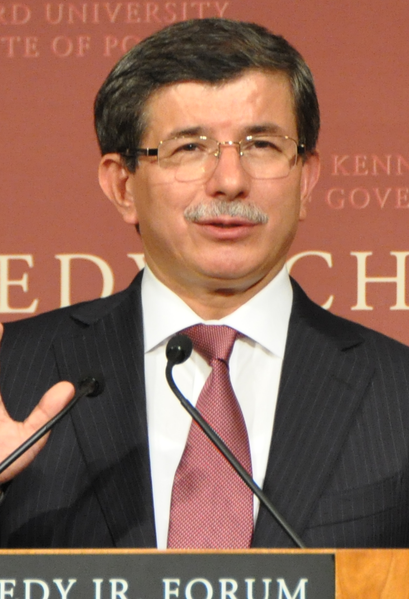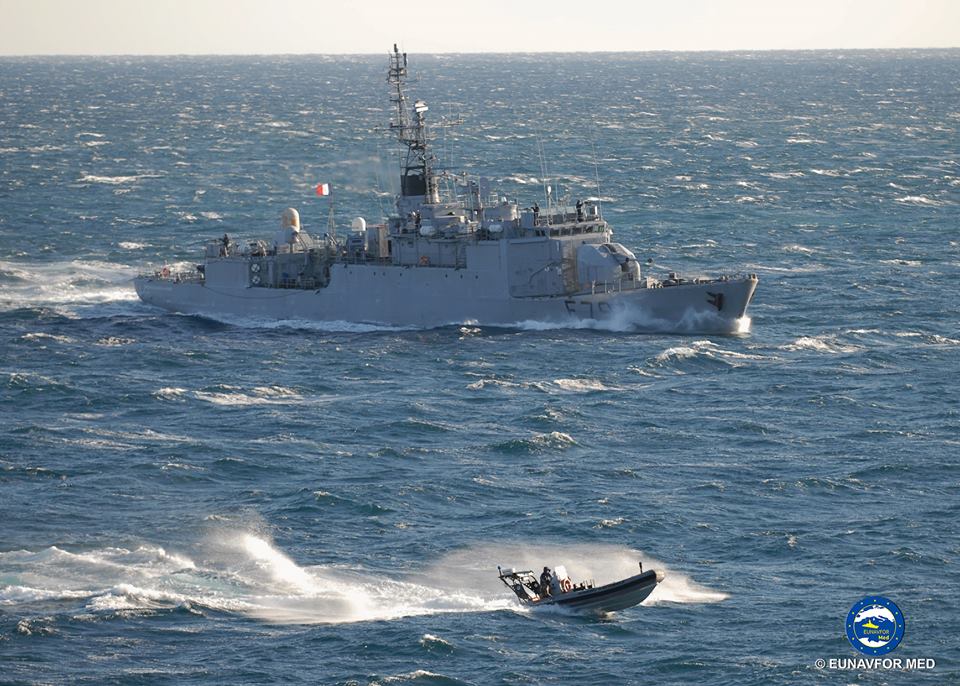The 27 will give the green light to a CSDP humanitarian support operation in Libya (Maj)
(BRUSSELS2/exclusive) The 27 Heads of State and Government (1) should give the political "green light" to an EU humanitarian operation on the borders of Libya, taking "note" of the planning projects underway . The ambassadors of the COPS - the political and security committee of the European Union - indeed approved this morning (Thursday 24 March), by way of written procedure, the concept of crisis management (CMC) of this operation of the PeSDC . This is the necessary first step for the concrete continuation of the planning. It will now be necessary to write the decision (common action), the Conops (concept of operation) and the OpPlan (operation plan). The experts could quickly set to work to write these documents (a single document could take the place of Conops and OpPlan), define the means required, designate the headquarters of the operation and an operation commander.
An operation calibrated "on demand"
All details are yet to be determined. But the main lines are already known (2). The operation will be of a variable nature, to allow a rapid reaction "at the request" of the international organizations which coordinate humanitarian aid (OCHA) or of the European Office for Humanitarian Aid, as well as of the countries of the region concerned. Tunisia and Egypt are named "or any place depending on the circumstances" (read: Libya, Niger, ...). This will essentially involve setting up an air/sea bridge, expandable as needed. But also to provide various means to allow the reception of refugees in large numbers at the borders (establishment of camps...), including the securing of the camps, if the local authorities (in particular Tunisian) so request. The rules of engagement and use of force still need to be defined.
This operation will have to be closely coordinated with the two other operations “Odyssey Dawn” and “Unified Protector” carried out by NATO and the international coalition. It will be carried out in close liaison with European, humanitarian (ECHO) or civil protection (MIC) structures.
Two possibilities of headquarters: Brussels or Rome
For the operations headquarters (OHQ), two options were presented: the possibility of using a small crisis cell set up within the General Staff in Brussels or the Italian offer of an OHQ, located Rome.
The first solution is more cumbersome to implement, but it makes it possible to use an OHQ that has never been used, to liaise with the Italian authorities who could be heavily involved in this operation as they already are, more or less, in the two NATO/Coalition operations in Libya.
The second solution - never used in European military operations - has the advantage of flexibility, speed of implementation and ease of liaison with European political and operational structures (MIC - Civil Protection). Structures which have already ensured the coordination of operations for the repatriation of EU nationals (Pegasus I) and then for the evacuation of foreign nationals (Pegasus II). In terms of methods and tools, we would thus be in a sort of "reinforced Euco Haiti".
The launch of this operation is an excellent way for the leaders of the European Union to celebrate their unity and to hide all their divisions, past and present, on Libya. It also allows countries "remaining on the edge" of the military operation in Libya for political or status reasons to be able to mark that they are present on the ground as well.
(1) Conveniently we use the term "27". Formally, there are 26 if we are talking about a military operation of the PeSDC, Denmark benefiting from an opt-out in terms of military defense operation.
(2) Read also: Towards a humanitarian CSDP mission near Libya. Details of a new kind of operation
(updated 22 p.m. - details on planning items)

